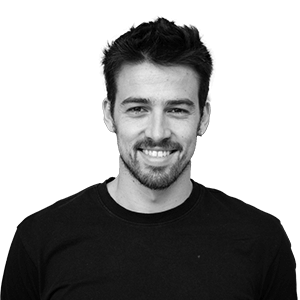Ángel Simón, a 15-month term
The manager has gone from being Fainé's possible successor to leaving Criteria a year and three months after joining.


Barcelona"I was surprised; he was appointed not long ago," a senior representative of Catalan civil society told ARA. "It was a long-awaited appointment when he landed at Criteria," adds this source, who worked with Àngel Simón for several years. In fact, this is the majority opinion of those consulted by this newspaper regarding this major news: Simón's premature dismissal as CEO of Criteria. "What are you saying? Did this happen today?" asks another representative of civil society. Surprise, a year later, is mixed with disbelief.
"He has a very good political outlook; he's not a manager focused solely on the bottom line. He looks out for the country's interests," says the first source about Simón. A year ago, he was chosen to replace Marcelino Armenter, who had been CEO of the La Caixa Foundation investment holding company since 2019. And so it was, although the candidates at the time already included real heavyweights, such as José María Álvarez-Pallete (former president of Telefónica) and Francisco Reynés now. He was also chosen to become executive vice president and accompany Isidre Fainé, president of the Foundation, in one of the most influential positions in Catalan and Spanish politics.
"In the case of Agbar, he knew how to manage several purchase and sale processes and ensure that Agbar didn't lose its identity as a local company," says one of the sources, giving another key explanation for his sensational landing at the top of La Caixa. In the last year, its investment arm has stepped up its pace through its reinvestment strategy in the most strategic and industrial sectors of the Spanish economy. First it was Telefónica, then Europastry and Celsa, and the Belgian group Interparking. The culmination of Simón's brief legacy at the helm of Criteria has been the return of La Caixa's headquarters to BarcelonaThe most controversial episode was the acquisition of Celsa's capital, an announcement that cooled two weeks later. "It is still under review," the holding company said in a statement.
"The reason eludes me," says another person also consulted by this newspaper. No one seems to have clear answers regarding Simón's fleeting status as CEO of Criteria. A year ago, sources close to La Caixa dampened one of the most hopeful hypotheses for Simón's career, championed by several voices in the financial sector: that he might be the man destined to succeed Fainé. Now, the eventual succession of the president of the La Caixa Foundation, who is over 80 years old and has a term that runs until next year, is back to square one. "Simón has a difficult demeanor. He is a good professional, but it's difficult to understand him. He demands loyalty to himself, not to the project," explains a person who has dealt closely with him. The bitter power struggles in these circles can erode strong relationships; this isn't the first or second time that one of Fainé's closest associates has left La Caixa. Very well connected within the Socialist orbit, some say this affinity also ends up taking its toll on Simón. "In Madrid, he presented himself in too many places as the next strongman and successor," says another source, who points out that Simón used to dine with prominent Socialist leaders. Fainé knew this, and this "imprudence" on Simón's part, coupled with a "growing distrust" of him by the president of La Caixa, has ended up being decisive, the same source emphasizes.
A resident of Manresa and a civil engineer by training, Simón began his professional career as manager of the Barcelona Metropolitan Area. In 1995, he joined Agbar, first as a representative in Portugal and later as international general manager of the water and sanitation sector. After his time in Chile, he was appointed CEO of Aguas de Barcelona. Before joining La Caixa, Simón was president of the Agbar group from 2010 to 2024, a position he combined with the executive vice president of Suez, a position for Southern Europe and Latin America (2013-2022). A career that, according to someone who has spoken with him, has also defined him: "He doesn't come from the financial world; the financial world demands discretion. He learned later, but at first, he wasn't discreet," he says.
